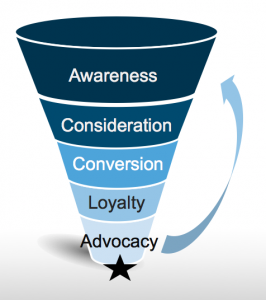Becoming the boss is an exciting transition, but it can be a tricky one – and if you’re making a move from being a peer to leader, just the thought of managing your office buddies can be nerve-wracking. This is because workplace friendships take a completely different turn when you land a promotion, and therefore adjusting to the new social dynamic can be tough.
You face the challenges that the new position brings along with the additional challenge of people having to recalibrate their relationship with you. Plus, you need to establish your authority and credibility, without acting like the promotion has turned you into a conceited person.
How you go about it depends on your organization and your leadership style, but here are four tips to make the transition smoother.
1. Set Your Boundaries
Right from the start, you need to set clear expectations and boundaries so you don’t end up treating your team as your friends. It is your job as a leader to make clear what is acceptable and what is not.
Once you transition from peer to leader, you cannot continue to have relationships in the same way you did before. While there must have been a time when you would go out for happy hours, as a manager things change a bit and that’s part of the deal: you either don’t go or you only stay for a drink or two. This, however, doesn’t mean you become aloof and unavailable and don’t have fun as a leader. You may only want to attend fewer social gatherings. In other words, you need to manifest it through your behavior that you’re now their manager.
2. Tread Lightly At First
As a newly turned manager, you may have plenty of ideas on how to lead the team. But it is important that you don’t introduce any radical overhauls right away. Make sure you don’t step on toes or damage relationships while establishing your authority.
Let’s face it: when you jump from being a coworker to a boss, you kind of walk on the edge, so you need to strike a balance between acting as Alexander Haig and a super peer. Identify a couple of small decisions that you can make rather quickly, but hold off the bigger ones until you have gathered some input and have been in the role for some time. For instance, you may draw up a new schedule for your individual meetings and team or you may set up your new expectations for team communication.
3. Address Any Resentment
There is a high chance that another coworker might have been competing for the position you got and this can translate into resentment or even hostility. In case you sense someone is perturbed by your new promotion, consider meeting with them in a neutral space and try to talk openly about what it’d be like to work together in the new roles.
You may even explain that you’ve wanted the role for a long time or admit that you’re surprised to land it. No matter how things go, don’t get hung up on their defensiveness. Demonstrate through your actions that you’re rising up and acting like a leader.
4. Maintain the Status Quo for some time
If you’ve won a new role or specifically, moved from being peer to leader, it is highly likely that you’d be tempted to exercise your new position of power to alter the way things work. Resist that urge to shake things up until you’ve fully settled in. Avoid making any kind of structural changes that may have an enormous impact on people’s lives too soon.
Similarly, when it comes to personnel changes, fight back the urge to immediately get rid of the people who do a poor job. Give yourself time to sit in your new authority and power because any abrupt changes will rock the boat, thereby making everyone else insecure.
Business & Finance Articles on Business 2 Community
(33)
Report Post

